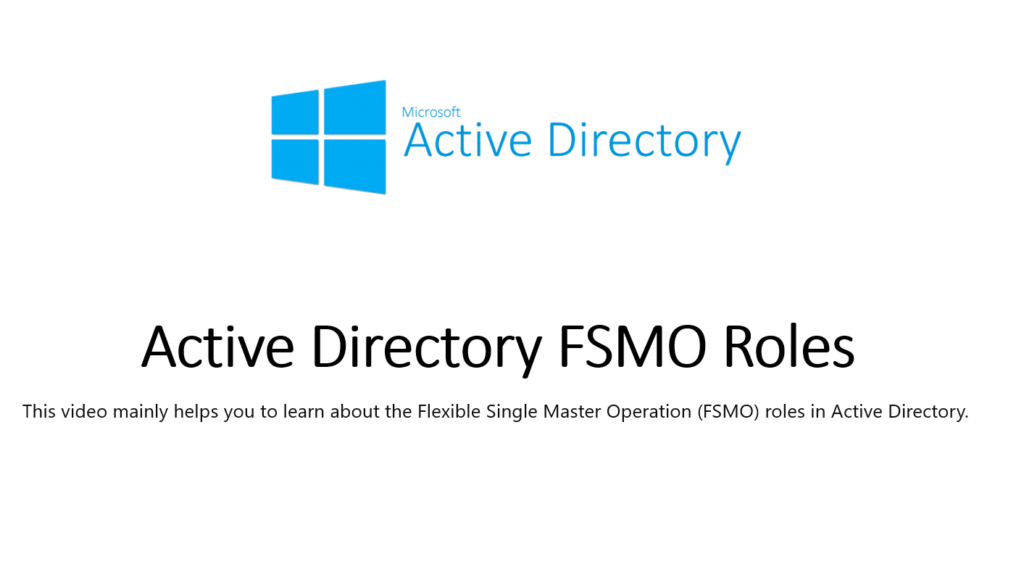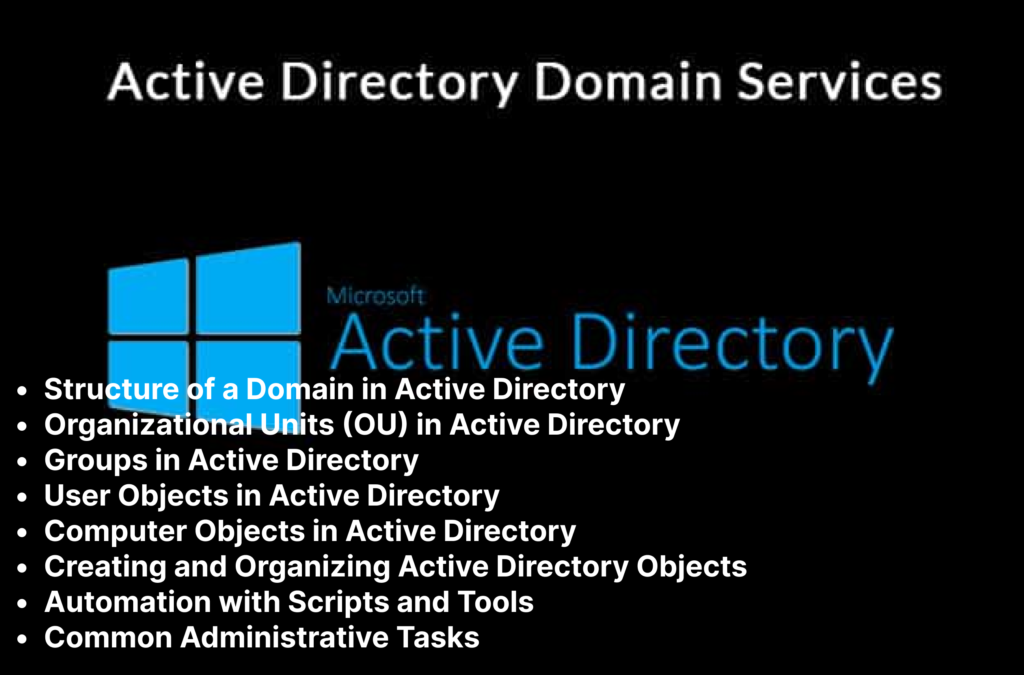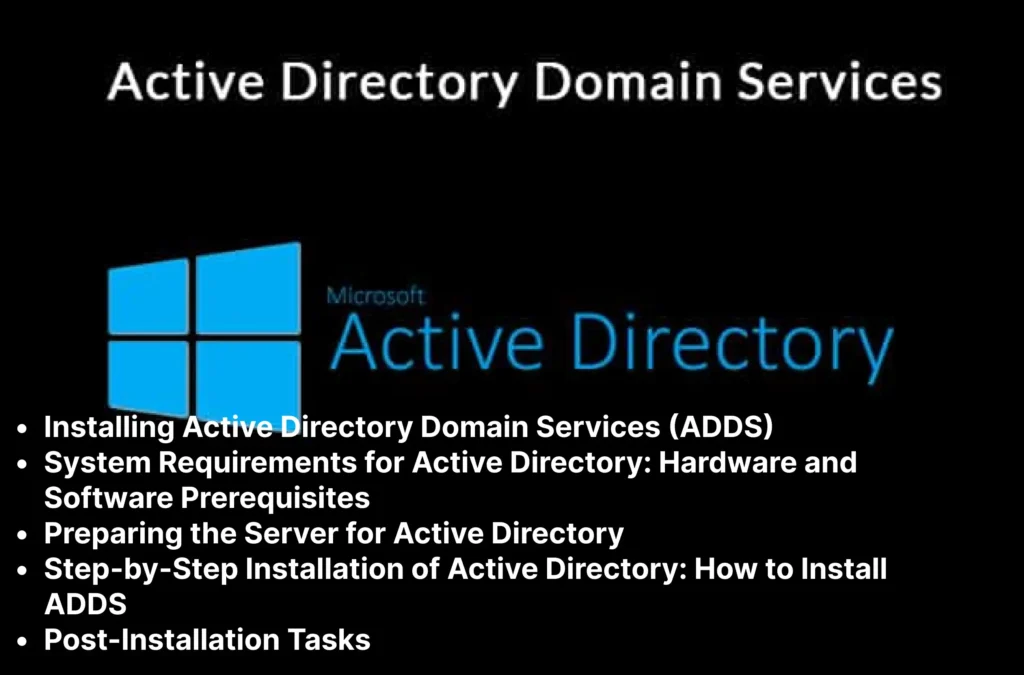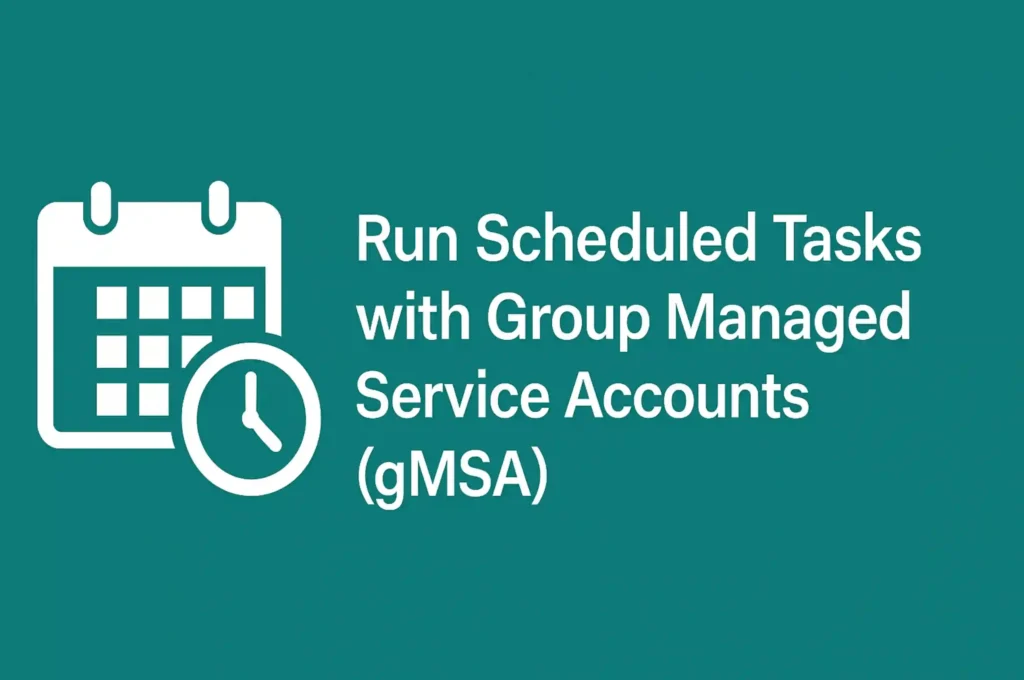FSMO Roles in Active Directory. Discover the importance of Flexible Single Master Operations (FSMO) roles in Microsoft Active Directory. This comprehensive guide explores the five FSMO roles, their responsibilities in managing directory data, and best practices for assignment, management, and troubleshooting. Learn how to ensure a healthy Active Directory environment and avoid common issues that can disrupt network operations.

Understanding FSMO Roles in Active Directory
Table of Contents
What are FSMO Roles?
Flexible Single Master Operations (FSMO) roles are crucial components of Microsoft Active Directory, serving to enhance the management and integrity of directory data across a networked system. In environments where multiple domain controllers are present, these roles play an essential part in ensuring that directory updates and operations are performed efficiently and accurately. FSMO roles help mitigate potential conflicts that may arise from having multiple servers attempting to manage the same data, which can lead to inconsistencies within Active Directory.
In essence, FSMO roles can be categorized into two distinct types: master roles and replica roles. Master roles are responsible for specific tasks that cannot be delegated, while replica roles can be handled by any number of domain controllers in a given domain. This division allows for a streamlined approach to directory management, ensuring that some operations are governed by a single source of authority to maintain data integrity.
There are five specific FSMO roles recognized in Active Directory: Schema Master, Domain Naming Master, PDC Emulator, RID Master, and Infrastructure Master. Each role has a unique responsibility, contributing to the overall functionality of the directory service. For example, the Schema Master oversees changes to the schema, which defines the structure and types of objects that can be stored in the database. On the other hand, the Domain Naming Master is responsible for overseeing the addition or removal of domains within the forest.
By distributing these responsibilities among designated roles, Active Directory can effectively handle various tasks while minimizing the risk of data errors. Consequently, the understanding of FSMO roles is vital for IT professionals and system administrators, particularly in multi-domain environments, where precision in directory operations is paramount. This concept sets the foundation for exploring each role’s specific functions and their significant impact on maintaining a healthy Active Directory structure.
Types of FSMO Roles
In Active Directory, Flexible Single Master Operations (FSMO) roles are critical components that ensure the proper management and functioning of directory services. There are five distinct FSMO roles, each with its own specific responsibilities and operations that are fundamental to maintaining the directory environment.
The first role is the Schema Master. This role is responsible for maintaining the integrity of the directory schema, which dictates the structure and types of objects that can be stored in the Active Directory. The Schema Master must be consulted whenever a change to the schema is initiated, making its availability crucial for any modifications. A failure of the Schema Master can hinder the ability to extend the schema, thereby affecting applications reliant on specific attributes or object classes.
The second role is the Domain Naming Master, which oversees the addition and removal of domains within the forest. This role ensures that domain names are unique across the forest, preventing conflicts. In scenarios where a new domain is added or an old one is removed, the Domain Naming Master must be accessible; otherwise, these operations cannot proceed. Failure of this role may lead to confusion in the naming and management of domains, complicating administrative tasks.
The third role is the RID (Relative Identifier) Master. This role allocates pools of RIDs to domain controllers, which in turn assign unique identifiers to security principals (such as users and groups) in the domain. If the RID Master becomes unavailable, domain controllers may exhaust their allocation of RIDs, resulting in the inability to create new security principals, thereby impacting user access and permissions.
Next, the PDC (Primary Domain Controller) Emulator role provides backward compatibility for Windows NT clients and is crucial for synchronizing time across the domain. It also handles password changes and account lockouts. A failure in this role can disrupt authentication and authorization processes, leading to a cascading effect on user productivity.
Lastly, the Infrastructure Master role is responsible for updating references from objects in its domain to objects in other domains. This role ensures that cross-domain object references remain valid. In a multi-domain environment, if the Infrastructure Master is not functioning properly, it can lead to outdated or orphaned references, confusing administrators and users alike.
Understanding these FSMO roles, their individual responsibilities, and the impact of their performance or failure is essential for effective Active Directory management. By ensuring that these roles are properly maintained and monitored, organizations can avoid potential disruptions in their directory services.
FSMO Role Assignment and Management
Within Active Directory (AD), the Flexible Single Master Operation (FSMO) roles are crucial for the maintenance and proper functioning of the directory service. The assignment of these roles typically occurs during the installation of the domain controller. As a new domain controller is promoted in an Active Directory environment, the FSMO roles are assigned automatically by the system. The five FSMO roles include the Schema Master, Domain Naming Master, RID Master, PDC Emulator, and Infrastructure Master. Depending on the AD environment, these roles may be allocated to a single domain controller or distributed across multiple controllers for fault tolerance and performance optimization.
Administration of FSMO roles does not end with initial assignment; it is essential for administrators to manage and transfer roles as required. In situations where a domain controller is being decommissioned or fails to execute its duties, roles can be transferred using the Active Directory Users and Computers tool or the Command Line Interface (CLI). This transfer process is crucial in maintaining the overall health of the Active Directory, as improper role assignments or neglect can lead to issues with authentication, replication, and other directory services.
Moreover, administrators can seize roles when a domain controller is permanently offline and cannot be recovered. This process is a straightforward approach to reclaiming roles but should be conducted with caution as it can lead to replication inconsistencies if not handled properly.
Regular monitoring of FSMO role holders is considered a best practice in AD management. By periodically checking the current role assignments and ensuring they are held by operational domain controllers, administrators can maintain a robust Active Directory structure. Leveraging tools like dcdiag, which offers diagnostics for domain controllers, can further enhance FSMO role management, ensuring a healthy and functional AD environment.
Troubleshooting FSMO Roles
Flexible Single Master Operations (FSMO) roles are critical to the effective functioning of Active Directory (AD). However, various issues can arise that can disrupt the normal operations of these roles. Recognizing the signs of issues with FSMO roles is essential for maintaining a healthy AD environment. Common symptoms might include difficulty authenticating users, problems with domain name resolution, and replication errors. These issues can often point to failures in specific FSMO roles.
To diagnose problems with FSMO roles, administrators can utilize several built-in tools and commands. The netdom command allows for checking the status of roles and identifying which domain controller is currently holding each FSMO role. Additionally, the dcdiag command provides detailed diagnostics of domain controllers, helping to pinpoint problems related to FSMO assignments. Running repadmin /replsum can also be valuable, as it reveals replication issues that might stem from FSMO role malfunctions.
Once the issues are diagnosed, resolving them can require various strategies depending on the nature of the problem. If a role owner becomes unavailable, it may be necessary to transfer the FSMO role to another healthy domain controller using the ntdsutil utility or the Active Directory Users and Computers snap-in. Regular maintenance activities, such as monitoring event logs and ensuring time synchronization across domain controllers, can help to mitigate issues before they escalade into significant problems.
Furthermore, implementing a proactive monitoring system can allow administrators to track the health of FSMO roles and receive alerts regarding potential issues. By doing so, organizations can maintain the integrity of their Active Directory services and ensure continued optimal performance across their network infrastructure. Regular reviews of FSMO role health, along with systematic troubleshooting methods, are vital for sustaining a reliable Active Directory environment.




